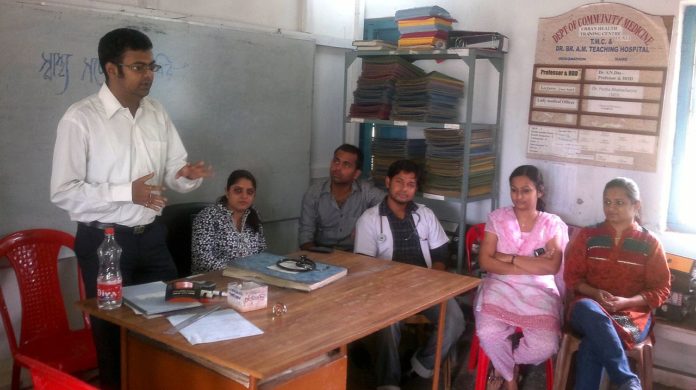The Union cabinet on Wednesday cleared the National Medical Commission Bill that seeks to replace the Medical Council of India by a National Medical Commission
The Union cabinet has passed the National Medical Commission Bill 2019. The Bill provides for the setting up of a National Medical Commission as the apex regulator of medical education in the country, replacing the Medical Commission of India.
The Bill had been sent to Parliament during the tenure of the last government where it was also scrutinised by a standing committee. Te recommendations of the standing committee were accepted and relevant changes made in the Bill. However it still failed to clear Lok Sabha.
Among the other provision, the Bill lays down that the final year MBBS examination would be the licentiate examination, the entrance examination for admission to postgraduate courses and also the screening test for foreign medical graduates that allows them to register and practice in India. The common exit test would be applicable to all medical students including those in prestigious institutes like AIIMS.
The Medical Council of India (MCI) is established under the Indian Medical Council Act, 1956 in order to maintain standards of medical education, give approval to establish medical colleges, medical courses, and recognise medical qualifications
The commission will also regulate the fee structures of medical colleges, but only in 50% seats.
The NMC will consist of 25 members. A Search Committee will recommend names for the post of Chairperson, and part-time members. The term of the members of the NMC will be a maximum of four years, with no reappointment. The Search Committee will consist of seven members including the Cabinet Secretary, Union Health Secretary, CEO of NITI Aayog, and four experts nominated by the central government (of which, two have experience in the medical field).
Four autonomous Boards have been set up under the supervision of the NMC. Each autonomous Board will consist of a President and two members, appointed by the central government. The boards are the UG Medical Education Board, PG Medical Education Board, Medical Assessment and Rating Board and the Ethics and Registration Board.
The Medical Council of India (MCI) is established under the Indian Medical Council Act, 1956 in order to maintain standards of medical education, give approval to establish medical colleges, medical courses, and recognise medical qualifications. The MCI is also responsible for the regulation of medical practice, including registering doctors in an All India Medical Register.


